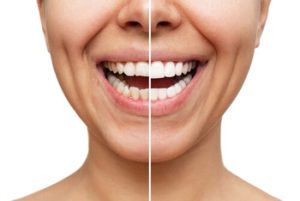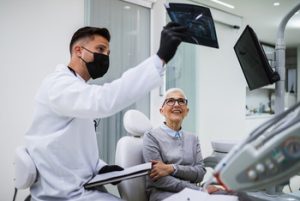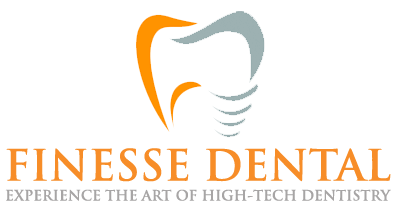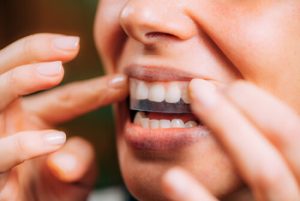Are you dreaming of a dazzling, white smile? You’re not alone. A bright smile can boost your confidence and make a striking impression. However, life’s indulgences like your morning cuppa or an occasional glass of Shiraz can leave their mark on your teeth. Fear not! This guide is your comprehensive resource on how to whiten teeth, balancing effectiveness and safety.
Understanding Teeth Discolouration
First, let’s dive into what causes those pesky tooth stains. There are two main types of tooth stains: intrinsic, which are internal, and extrinsic, which are surface stains often caused by food and drinks. Factors like smoking, age, and certain medications also play a role. It’s important to remember that staining teeth can vary greatly from person to person.

Teeth discolouration can be broadly categorised into two types: extrinsic, which affects the outer layer of the tooth (the enamel), and intrinsic, which is all about changes inside the tooth. Lifestyle choices often cause extrinsic discolouration – think your morning espresso, a stubbie of beer, or a durry. These leave surface stains on the tooth enamel. Intrinsic discolouration is more about internal tooth changes, often due to medications, tooth trauma, or even excessive fluoride during childhood.
Professional Teeth Whitening
Professional teeth whitening treatments are the go-to option for those seeking immediate results. These involve a dentist applying a high concentration of whitening gel, often enhanced with lights. While effective, they can be expensive and unsuitable for everyone, especially those with sensitive tooth enamel.
The Process of Professional Teeth Whitening
Professional teeth whitening is typically performed in a dental clinic. The process involves applying a high-concentration whitening agent directly onto the teeth, like hydrogen peroxide or carbamide peroxide. This is often activated with a special light or laser, enhancing bleaching. Such treatments can dramatically lighten yellow teeth, offering a significant change that is immediately noticeable.
The Role of Oral Health in Teeth Whitening
Before diving into teeth whitening, ensuring your oral health is up to scratch is essential. A professional dental examination can identify underlying issues like tooth decay or gum disease, which must be addressed before whitening. Maintaining good oral health not only supports the longevity of your whitening results but also ensures the overall health of your mouth.
Natural Teeth Whitening Remedies
In pursuing a brighter smile, natural teeth whitening remedies have garnered interest from those preferring a more holistic approach. While these methods may not offer the dramatic results of professional treatments, they can be gentle alternatives for those looking to enhance their smile subtly.
Baking Soda: A Natural Abrasive
Baking soda is a common household item that doubles as a natural teeth whitener. Its mild abrasive properties can help scrub away surface stains on teeth, making it a popular ingredient in many whitening toothpastes. To use baking soda for teeth whitening, you can create a paste by mixing it with water and gently brushing your teeth. However, it’s crucial to use it sparingly to avoid damaging the tooth enamel.
Hydrogen Peroxide: A Natural Bleaching Agent
Hydrogen peroxide, another household staple, is known for its natural bleaching properties. It can be used as a mouthwash or mixed with baking soda to form a whitening paste. However, caution is advised as overuse can lead to tooth sensitivity and irritation. It’s recommended to use a solution with a low concentration of hydrogen peroxide and limit its usage to a few times a week.
Fruit Peels: An Unconventional Approach
Some natural remedies suggest using fruit peels, like those from bananas or oranges, to whiten teeth. The idea is that these peels compounds can help polish the tooth surface. While there’s limited scientific evidence to back this up, it’s a gentle method for those interested in natural alternatives.
Oil Pulling: An Ancient Practice
Oil pulling, an ancient practice from Ayurvedic medicine, involves swishing oil in the mouth for a period to remove bacteria and promote oral hygiene. While traditionally, sesame oil was used, many now opt for coconut oil due to its pleasant taste and potential health benefits. While not a direct teeth whitening method, oil pulling can contribute to oral health and possibly aid in reducing stains and plaque.
Dietary Choices: Prevention is Key
Regarding natural teeth whitening, what you eat and drink plays a significant role. A diet rich in fruits and vegetables can help keep your teeth healthy and bright. Crunchy produce like apples and carrots can help scrub your teeth as you eat, while foods high in calcium, like dairy products, can help strengthen tooth enamel.
Tackling Extrinsic Discolouration with Whitening Toothpaste
For those dealing with extrinsic stains, whitening toothpaste is a good place to start. These toothpaste contain mild abrasives and polishing agents that effectively remove surface stains from the tooth enamel. Some even have chemical agents that provide additional stain removal. It’s not an overnight solution, but with consistent use, whitening toothpaste can improve the appearance of stained teeth.
Teeth Whitening Gel: A Step Further
Consider teeth whitening gels if you’re seeking something more potent than a whitening toothpaste. These gels contain bleaching agents like hydrogen peroxide or carbamide peroxide that penetrate the enamel to address the discoloured molecules inside your teeth. You can find these gels in over-the-counter products or as part of a professional teeth whitening treatment prescribed by your dentist. When used correctly, teeth whitening gels can provide a noticeably whiter smile.
Professional teeth whitening treatments are the way for those who desire a more dramatic transformation. These treatments, conducted by dental professionals, use high-concentration bleaching agents that provide faster and more significant results than over-the-counter options. The process typically involves the application of a teeth-whitening gel on the enamel, often activated by a special light or laser to enhance effectiveness. While these treatments can be more expensive, they offer a reliable and efficient way to whiten your teeth, often yielding several shades lighter results.
Myths vs. Facts
There’s a lot of folklore out there about teeth whitening. It’s important to separate fact from fiction for the health of your teeth.
Myth: Whitening Damages Tooth Enamel
Fact: Most teeth whitening treatments, including at-home products and professional procedures, do not damage tooth enamel when used as directed. The key is to follow product guidelines or dentist recommendations to ensure safety.
Myth: Whitening Treatments Work on All Types of Teeth Stains
Fact: Whitening treatments are typically most effective on extrinsic (surface) stains caused by foods, drinks, or smoking. Intrinsic stains, such as those caused by medications or injury, may not respond as well to standard whitening treatments.
Myth: The Stronger the Whitening Product, the Better
Fact: Higher concentrations of bleaching agents don’t necessarily guarantee better results and can increase the risk of tooth sensitivity and gum irritation. Using a product suitable for your needs and sensitivity levels is important.
Myth: Whitening Results Are Permanent
Fact: Teeth whitening is not permanent. Your teeth can become stained again from foods, drinks, or tobacco. Regular maintenance and good oral hygiene can prolong the results.
Myth: Natural Remedies Like Lemon Juice and Apple Cider Vinegar Are Safe and Effective
Fact: Acidic substances like lemon juice and apple cider vinegar can erode tooth enamel over time. It’s safer to stick with products specifically designed for teeth whitening.
Myth: Over-the-counter whitening Products Are Harmful
Fact: When used according to the instructions, over-the-counter whitening products are generally safe. Look for products approved by dental associations for additional assurance.
Myth: Teeth Whitening Causes Severe Tooth Sensitivity
Fact: While some people may experience temporary sensitivity to hot or cold after a whitening treatment, it’s usually mild and subsides quickly. Using toothpaste for sensitive teeth can help alleviate this issue.
Myth: You Can’t Whiten Crowns, Veneers, or Fillings
Fact: Whitening treatments only work on natural teeth. Crowns, veneers, or fillings will not whiten with these treatments and may need replacement if they become noticeably different in colour from your natural teeth after whitening.
Myth: Whitening Toothpaste Can Replace Professional Treatments
Fact: Whitening toothpastes can help remove surface stains, but they typically don’t have the same strength as professional treatments. For deeper stains or more dramatic results, professional treatments are more effective.
Understanding these myths versus facts can guide you in making informed decisions about teeth whitening, ensuring you choose the right method for your dental health and aesthetic goals.
When to See a Dentist
If you’re considering any tooth whitening treatment, it’s wise to chat with your dentist first. They can advise on the best and safest methods for your needs, especially if you have concerns like tooth decay or sensitive teeth.

Moreover, consulting a dentist is crucial if you’re looking for long-lasting and significant whitening results. Dental professionals offer a range of options for whitening teeth, from in-chair treatments to customised at-home kits tailored to your needs and dental health. They use higher concentrations of whitening agents, which are more effective than over-the-counter products and can provide a personalised treatment plan to maintain your bright smile. If you’re contemplating teeth whitening, a visit to the dentist can be the first step towards achieving a radiant smile with confidence and assurance in the health of your teeth.
Conclusion
Whitening teeth is a journey that combines the right treatments with good oral habits. Whether you opt for a professional teeth whitening treatment, an at-home whitening kit, or natural methods like baking soda and hydrogen peroxide, remember to tread carefully and prioritise the health of your tooth enamel.
For personalised guidance and to explore the best teeth whitening options for you, don’t hesitate to contact Finesse Dental. Our experienced professionals are dedicated to helping you achieve the radiant smile you deserve. Contact us at (02) 8806 0790 and take the first step towards a brighter, healthier smile. Your dream smile is just a phone call away!
References:
https://www.healthline.com/nutrition/whiten-teeth-naturally
https://www.medicalnewstoday.com/articles/322421


